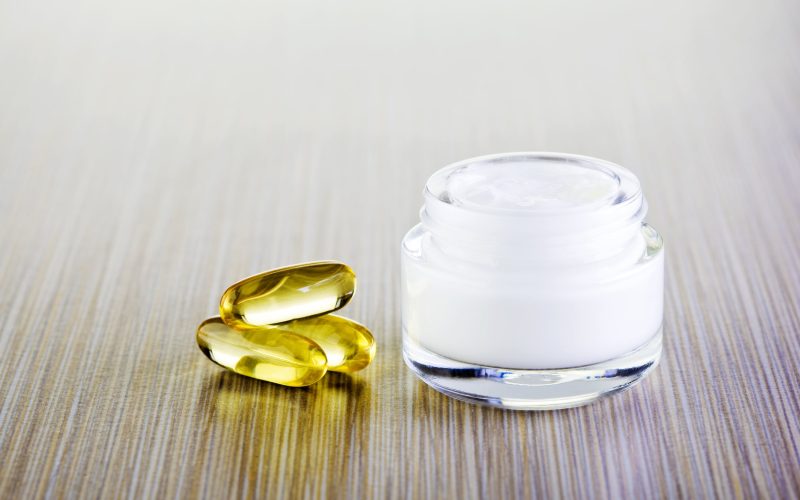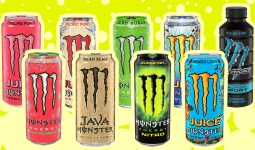Collagen is the most substantial amount of protein in the body.
Overview
It has essential roles, including providing structure to the skin and helping the blood clot. In recent years, it has become known as a nutritional supplement and ingredient in body lotions and shampoos.
But what is collagen? And what is it suitable for? This article intends to give a thorough and understandable overview of this vital protein.
What Is Collagen?
Collagen is the largest amount of protein in the body, accounting for about a third of the body’s protein composition.
One can think of it as the “glue” that binds all these things together. Collagen, as a word, comes from the Greek word “kólla,” which translates to glue.
Collagen has a lot of significant benefits, including providing the skin with structure and strengthening the bones.
It’s one of the major building components of ligaments, bones, skin, tendons, and muscles. Collagen is also in many other body parts, which include corneas, teeth, and blood vessels.
Recently, collagen supplements have become widespread. They are usually are hydrolyzed, which implies the collagen has been broken down, making it easier for the body to absorb.
Furthermore, there are various foods one can eat to boost collagen intake, e.g., pork skin and bone broth.
Collagen intake has various assortments of health advantages, which range from relieving joint pain to enhancing skin health.
Health Benefits of Collagen
1. Improved skin health
Collagen is a crucial component of the skin.
It plays a part in nurturing the skin, and can also boost hydration and elasticity. As one age, the body generates less collagen, which leads to dehydrated skin and wrinkles.
However, studies have indicated that collagen peptides or supplements containing collagen may help reduce the aging of the skin by reducing wrinkles and hydrating the skin.
In research, women who consumed a supplement containing 2.5–5 grams of collagen for two months experienced improved skin hydration and a significant increase in skin elasticity in comparison with those who did not take the supplement.
Another research discovered that women who drank a beverage mixed with a collagen supplement daily for three months experienced decreased skin dryness and a substantial reduction in wrinkle depth.
The wrinkle-reducing impacts of collagen supplements have been credited to their ability to stimulate the body to produce collagen on its own.
Also, taking collagen supplements can facilitate the production of other proteins that benefit the structuring of the skin, including elastin and fibrillin.
There are also several unproven claims that collagen supplements prevent acne and other skin conditions, but these are not substantiated by scientific evidence.
2. Helps relieve joint pain
Collagen helps conserve the strength of the cartilage, which is the rubber-like tissue that protects the joints as the quantity of collagen in the body decreases as one age, the chances of developing degenerative joint conditions such as osteoarthritis increases.
Some researchers have shown that taking collagen supplements can improve symptoms of osteoarthritis and decrease joint pain.
In a study, 73 athletes who took 10 grams of collagen
for over five months experienced a substantial decrease in joint pain while walking and at rest, in comparison with a group that did not consume collagen supplements.
In another survey, adults consumed 2 grams of collagen daily for two months and a week. Those who took collagen had a considerable reduction in joint pain and were better able to partake in physical activity than others who did not take it.
Studies have deduced that supplemental collagen may amass in cartilage and stimulate the tissues to produce collagen.
They have advised this may lead to less intense inflammation, better support of the joints, and less pain.
If a person wants to try supplementing on collagen for its likely pain-relieving results, studies suggest one should start with an everyday dosage of 8–12 grams.
Taking collagen supplements has been indicated to decrease inflammation and boost collagen synthesis in the body, which can boost pain relief among people with joint disorders like osteoarthritis.
3. Prevention of bone loss
The bones are made primarily of collagen, which gives them structure and keeps them strong. When the collagen in the body erodes as one age, so does bone mass. This may lead to disorders called osteoporosis, which is defined by low bone density and associated with an elevated risk of bone fractures.
Studies have indicated that taking collagen supplements can have certain therapeutic effects in the body that help inhibit the bone deterioration that leads to osteoporosis.
In a survey, women took either a calcium supplement combined with 5 grams of collagen or a calcium supplement and no collagen day-to-day for a year.
At the end of the survey, the women taking the calcium and collagen supplement had considerably lower blood levels of proteins that stimulate bone breakdown than those taking only the calcium.
Another research found similar outcomes in 66 women who took 5 grams of collagen every day for a year.
The women who took the collagen indicated an improvement of up to 7% in their bone mineral density concerning women who did not consume collagen.
Bone mineral density is a gauge of the density of minerals, such as calcium, in the bones. Low bone mineral density is linked with weak bones and the development of osteoporosis.
These results are promising, but additional human studies are required before the function of collagen supplements in bone health can be substantiated fully.
4. Could boost muscle mass
Over 10% of muscle tissue is formulated of collagen. This protein is essential to keep the muscles strong and at optimal performance.
Researches indicate that collagen supplements help improve muscle mass in people with sarcopenia, the loss of muscle mass that happens as they get older.
In one research, 27 frail men took 15 grams of collagen while partaking in an exercise program daily for two months and two weeks. Described concerning men who exercised but did not take collagen, they gained considerably more muscle mass and strength.
Experts have implied that taking collagen may stimulate the synthesis of muscle proteins like creatine, as well as trigger muscle growth after exercise, although additional studies are necessary to examine collagen’s ability to boost muscle mass.
5. Promotes heart health
Researchers have inferred that taking collagen supplements may help decrease the risk of heart-related disorders.
Collagen gives strength to the arteries, which are the blood vessels that transmit blood from the heart to the rest of the body. Without sufficient collagen, arteries may become weak and ineffective.
This may cause atherosclerosis, a disease defined by the narrowing of the arteries. Atherosclerosis has the capacity to lead to stroke and heart attack.
In research, 31 adults took 16 grams of collagen every day for half a year. By the end, they had experienced a reduction in measures of artery stiffness, compared with before they started taking the supplement.
Also, they increased their levels of HDL “good” cholesterol by an average of 6%. HDL is a significant determinant in the risk of heart conditions, including atherosclerosis
Nevertheless, more research on the role of collagen supplements in heart health is needed.
6. Other health benefits
Taking Collagen supplements have other health advantages, but these have not been studied like others.
- Taking collagen supplements can improve the strength of the nails by deterring brittleness. Also, it can stimulate the hair and nails to grow longer
- Although there is no evidence to back up this benefit, some health experts recommend the prescription of collagen supplements to treat a porous intestine or leaky gut syndrome.
- Although no studies have assessed the function of collagen supplements in brain health, some people insist it can improve mood and reduce symptoms of anxiety.
Weight loss: Some experts believe that taking collagen supplements may aid weight loss and faster metabolism. Although there are no studies to substantiate the claims, these potential effects are encouraging, and more research is required before formal conclusions can be made.
Types of Collagen
Type I
This Type of collagen makes up for 90% of the body’s collagen and is made of a dense network of fibers. It provides structure to teeth, skin, bones, fibrous cartilage, tendons, and connective tissue.
Sometimes, Types I and III collagen are usually grouped together. These are because these pair types of collagen are the most substantial and play similar roles. In fact, together, they comprise more than 90% of the total body collagen.
These types of collagen are key components in the maintenance of the muscles, skin, nails, hair, and bones. Types I and III collagen are created by osteoblasts and fibroblasts, which are cells found in our connective tissues and cells that form bones, respectively.
This type of collagen can be found all over the body, excluding cartilaginous tissues. Type I collagen is important to replenishing skin and also helping to reverse the effects of aging on the skin. Clinical trials in patients who consumed Type I collagen supplements indicated enhanced skin firmness and hydration, as well as a reduction in wrinkles.
There are about 18 amino acids in collagen generally, in Type I and III, four major amino acids found within both types of collagen; Two of them are essential amino acids glycine and proline, and Glycine is an all-encompassing amino acid that plays many significant roles in the body.
Glycine is important in obstructing endotoxin (a compound that stimulates inflammatory signals and can lead to low thyroid levels).
Another important amino acid in Type I and III collagen is proline. Proline is particularly important for the stimulation of collagen synthesis as well as acting as an antioxidant and deterring cell damage from free radicals.
Type I and III collagen also comprise two other important amino acids; glutamine, which helps deter gut inflammation, and arginine, which may be able to help synthesize creatine for improved athletic performance.
Taking Supplements with Type I and III collagen has been indicated to have numerous health benefits for the body, including inhibiting hair loss, reducing wrinkles, fine thickening hair and reducing fine lines, improved circulation, supporting the formation of our bone structures, and strengthening nail beds.
Type II
This is made of more lightly packed fibers and is found in elastic cartilage, which supports the joints. This class of collagen is only produced by chondrocytes, inferring there will be a large amount of it in the cartilage.
Type II collagen comprises up to 50-60% of cartilage protein. Type II collagen can be gotten from chicken, and is helpful in support of the joints and cartilage, possibly able to help support the jaw, back, and joints – this includes reducing those irritating popping knees.
Type III
This Type lends support to the structure of muscles, organs, and arteries.
Earlier, Type I and Type III collagen are almost always grouped because of how similar they are in terms of their health benefits. Type III collagen can is found in the walls of the artery as well as other hollow organs.
It also typically happen in identical fibrils (subdivisions of muscle fibers) along with Type I. Just know that both are rich in those amino acids we mentioned earlier: glycine, proline, and glutamine.
Type IV
This helps with filtration and is found in layers of the skin.
As one age, the body produces less and lower-quality collagen. One of the visible indications of this is in the skin, which becomes less firm and supple. Cartilage also weakens with age.
Hydrolyzed Collagen Peptides vs. Gelatin
Collagen is made up of three long chains of over 1000 amino acids that are twisted to form a helix conformation. This full-length form of collagen is unhydrolyzed and difficult to digest.
Hydrolyzed collagen peptides are created by breaking down the full-length chain of amino acids through a process called hydrolysis to form short-chain amino acids.
Collagen peptides, also called hydrolyzed collagen, have the same amino acids as the full-length collagen, but with different structural properties.
Collagen peptides are substantially smaller in structure and thus are absorbed more proficiently (e.g., faster into the bloodstream) than the long chain of amino acids.
Gelatin is collagen that has pass-through partial hydrolysis, which results in a gel. Gelatin is beneficial in helping to thicken and add texture to foods, such as jello, puddings, and gummies.
Marine Collagen vs. Bovine Collagen
Bovine collagen can comprise Type I and Type III collagen. Bovine collagen deposits can be sourced from the cartilage, bones, or hides of cows.
Frequently, collagen supplements made from bovine collagen are sourced from the hides of cows. Collagen that’s come from the hides is basically a by-product of an existing production process.
If the collagen sourced from the hides weren’t getting turned into gelatin or hydrolyzed collagen, it would just get thrown away. Supplementing with bovine collagen provides health benefits to the bones, joints, skin, and gut.
Marine collagen comprises Type I collagen only. Marine collagen comes from fish and has the smallest particle size as well as the nethermost molecular weight of all the other collagen types.
This means even easier access through the bloodstream for better repair and effective nourishment. In fact, marine collagen is absorbed 1.5 times more proficiently than other collagens!
Marine collagen, or fish collagen, is popular for its anti-aging effects, including helping to decrease wrinkles and reduce the appearance of scars.
In addition to its efficiency, marine collagen is also great for sustainability; collagen-rich fish skin is typically a large portion of the estimated 60% of fish by-products that would usually become waste. That means less environmental pollution!
Collagen is not just found in fish and beef. Collagen can be sourced from a variety of animals, which includes but is not restricted to egg, pig, or chicken. Chicken collagen is usually extracted from the chicken’s breast cartilage.
Chicken collagen is a Type II collagen, and so it is beneficial for medicinal purposes, particularly for the joints, bones, and cartilage.
Egg collagen can be naturally found in both the yolk and the membrane of chicken eggs, containing both Types I and Type V collagen (Type V collagen is important for hair, placenta, and the surfaces of our cells).
It also has plenty of other proteins that help promote the body’s production of collagen as well.
Conclusively, there is pig collagen, which can be found largely in pork skin. High in glycine, pig collagen has been popular among nutritionists mostly for its skin benefits. When choosing which type of collagen is better for one, it is always advisable to find out where it is sourced from and what benefits one hopes to get.
How To pick the Best Collagen Type for One
It’s always essential to do the research before choosing the right dietary supplement for one. Based on the unique needs, condition, and lifestyle, certain types of collagen may be better than others.
We always recommend talking to the doctor before making the final decision. If one’s really focused on the beauty benefits, for example, Type I marine collagen might be right for one. Maybe gut health is something a person is concerned about, and it is recommendable to use bovine collagen because it has both Types I and III.
Collagen types are most helpful to the part of the body they are found in, so pay attention to the needs and choose accordingly.
Foods that contain collagen
Collagen can be found in the connective tissues of animals. Accordingly, foods like chicken skin, pork skin, beef, and fish are rich sources of collagen
Foods that include gelatin, such as bone broth, is also rich in collagen. Gelatin is a protein material derived from collagen after it has been cooked.
Although research is required to discern whether intake collagen-rich foods help increase collagen in the body. There have not been any investigations on whether collagen-rich foods have the same advantages as supplements.
Digestive enzymes dissolve the collagen in food into solitary amino acids and peptides.
Nonetheless, the collagen in supplements has already been dissolved or hydrolyzed, which is why it’s believed to digest more efficiently than the collagen in foods.
Nutrients That Increase Collagen Production
All collagen starts off as procollagen. The body makes procollagen by merging two amino acids: glycine and proline. This process uses vitamin C.
A person can be able to help the body create this important protein by making sure one gets plenty of the following nutrients:
- Vitamin C: Large quantities are found in citrus fruits (oranges, lime, lemons), bell peppers, strawberries, and carrots.
- Proline: Large quantities can be sourced from egg whites, wheat germ, cheese, cabbage, asparagus, milk, mushrooms, and yogurts.
- Glycine: Large quantities can be sourced from in pork skin, chicken skin, and gelatin, but glycine is also found in various protein-containing foods
- Copper: Large quantities can be sourced from lentils, sesame seeds, cocoa powder, cashews, and organ meats.
Supplementally, the body, requires a high-quality protein that contains the amino acids needed to make new proteins e.g., tofu, poultry, seafood, dairy, meat, and legumes are all good sources of amino acids.
Foods that inhibit collagen production
Sugar and refined carbs: Sugar inhibits collagen’s ability to repair itself. Minimize the consumption of added sugar and refined carbs.
Excess sunshine: Ultraviolet radiation can lessen collagen production. Avoid excessive sun exposure
Smoking: Smoking reduces collagen production. This can deter wound healing and lead to wrinkles. Some autoimmune conditions, such as lupus, can also damage collagen.
Natural Food Sources of collagen
Collagen is in the connective tissues of animal foods. For instance, it’s found in large quantities in chicken and pork skin.
One particularly rich source is bone broth; it is made by boiling down the bones of chicken and other animals.
Gelatin is simply cooked collagen, so it is very high in the amino acids needed to produce it. But there are discussions over whether consuming collagen-rich foods actually increases the levels in the body.
When one eats protein, it’s broken down into amino acids and then reassembled, so the collagen wouldn’t translate directly into higher levels in the body.
These have already been absorbed from the large protein down into smaller peptides, which are more easily absorbed in the body.
Collagen side effects
Currently, there are not many recognized risks linked with taking collagen supplements.
Nonetheless, some supplements are made from food allergens, such as fish, shellfish, and eggs, and some persons are allergic to these foods; hence should avoid collagen supplements made with these ingredients to avoid allergic reactions.
Some people also have concerns that collagen supplements leave a lingering bad taste in their mouths.
Further, collagen supplements have the potential to influence digestive side effects, such as feelings of fullness and heartburn.
Nonetheless, these supplements appear to be safe for most people.
Although much research has not been conducted on the safety or effectiveness of collagen supplements; The potential effects of gelatin supplements include a lingering repulsive taste and sensations of heaviness and heartburn.
Also, if one’s allergic to the source of the supplement, then one could have an allergic reaction. The peptide form does not gel, so one can mix it into smoothies, soups, or baked goods without affecting the texture.
One can use gelatin to make homemade jello or gummies. Check out some recipes here. When considering supplements, one should be on the lookout for a high-quality source. Marine collagen, which is sourced from fish skin, is also obtainable.
For thousands of years, it was used to manufacture glue. In recent times, it’s still used to create strings for musical instruments.
In food, it’s heated to create gelatin and used to make casings for sausages. In the medical field, it’s used as a filler in plastic surgery and as a dressing for severe burns.








